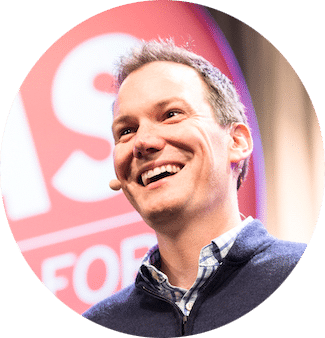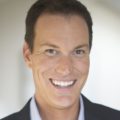Update on Happiness (It’s All Good!)

 Happiness is largely a choice. That may sound like magical thinking or like what no-guff grandparents meant when they said to buck up, but it’s actually the finding of a field of scientific study called positive psychology.
Happiness is largely a choice. That may sound like magical thinking or like what no-guff grandparents meant when they said to buck up, but it’s actually the finding of a field of scientific study called positive psychology.
“Many people think they can’t be happy right now because of their biochemistry or their job or life situation, but research has shown that we are not just our genes and environment,” says Shawn Achor, author of The Happiness Advantage and Before Happiness and co-founder of the Institute for Applied Positive Research. “We have a different picture of what it is to be human. We can train our brain to become more optimistic and thus happier.”
What’s more, researchers have found that you can do this at any age. “Small positive changes to habits and ways of interacting with others can overcome your genes and environment and can create an inflection point anywhere in your life,” Achor adds. “From age four to 84, we know that change is possible.”
So our no-guff elders were right! Or sort of. Here, Achor amends or casts new light on what sages have said over the years about happiness.
Aristotle said: “Happiness depends upon ourselves.”
Achor says: “Happiness depends on our creating positive connections. While happiness is a personal choice, it is also an interconnected one. The greatest predictor of happiness based on research is social connection—the breadth, depth and meaning in your social relationships. So trying to create happiness in isolation will put a cap on your happiness.”
Emily Dickinson said: “Such is the Force of Happiness-The Least-can lift a Ton/Assisted by its stimulus.”
Achor says: “I totally agree. I’ve worked with people in Zimbabwe who lost their land and their currency collapsed so they’re moving money in wheelbarrows, but they could still find happiness in the small social connections they felt with their friends and family. Which means even a small act of kindness can lift our spirits even in the darkest of times.”
Joseph Addison said: “Three grand essentials to happiness in this life are something to do, something to love and something to hope for.”
Achor says: “I would totally agree. To me, happiness is joy you feel moving toward your potential. It isn’t complacency; it’s not stagnant. Happiness is the fuel that pushes us toward our potential. Some of us are afraid of happiness, afraid that if we’re too happy, we won’t be hungry enough to solve the problems we need to solve. But happiness triples our creativity, dramatically improves our problem-solving abilities and gives us the energy to pursue our passions.”
Eleanor Roosevelt said: “Happiness is not a goal, it is a by-product.”
Achor says: “Happiness is a means and an ends. It should be a goal, and we should pursue it directly, because achieving it gives us the very fuel we need to achieve more goals and to make the world a better place, which, in turn, makes us even happier. We pursue intelligence and physical wellbeing. Why would we not pursue a healthy mind and spirit?”
Clark Gesner (lyricist for You’re a Good Man, Charlie Brown) said: “Happiness is two kinds of ice cream, knowing a secret, climbing a tree.”
Achor says: “I like this quote. It shows how happiness is a lot of different things to a lot of different people. Happiness is about framing and how we perceive the external world. Having a secret could be a huge weight—or you could think of it as something to be excited about. Only 10 percent of happiness is directly related to the external world, while 90 percent is how the brain processes the external world.”